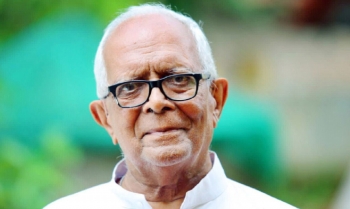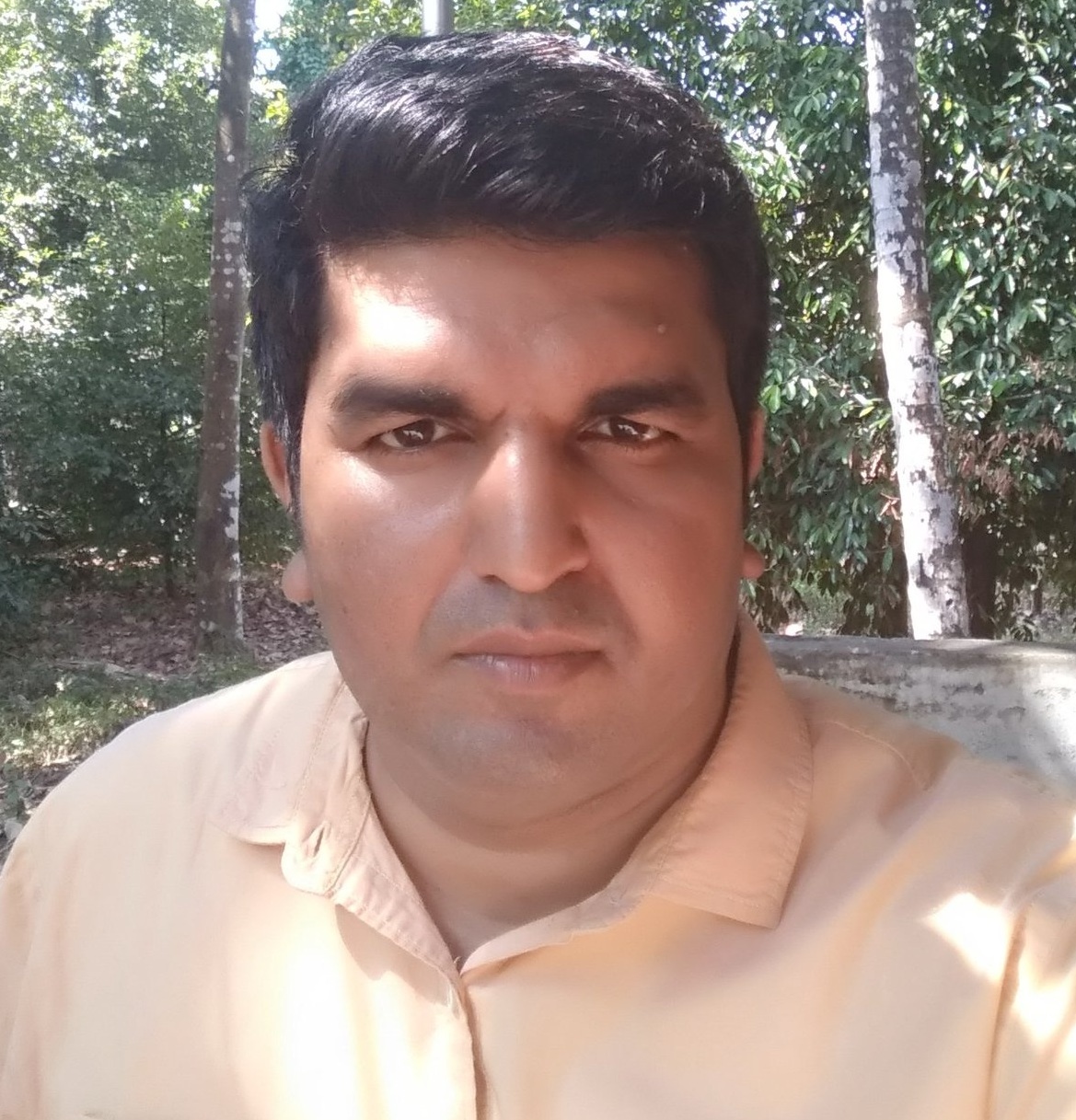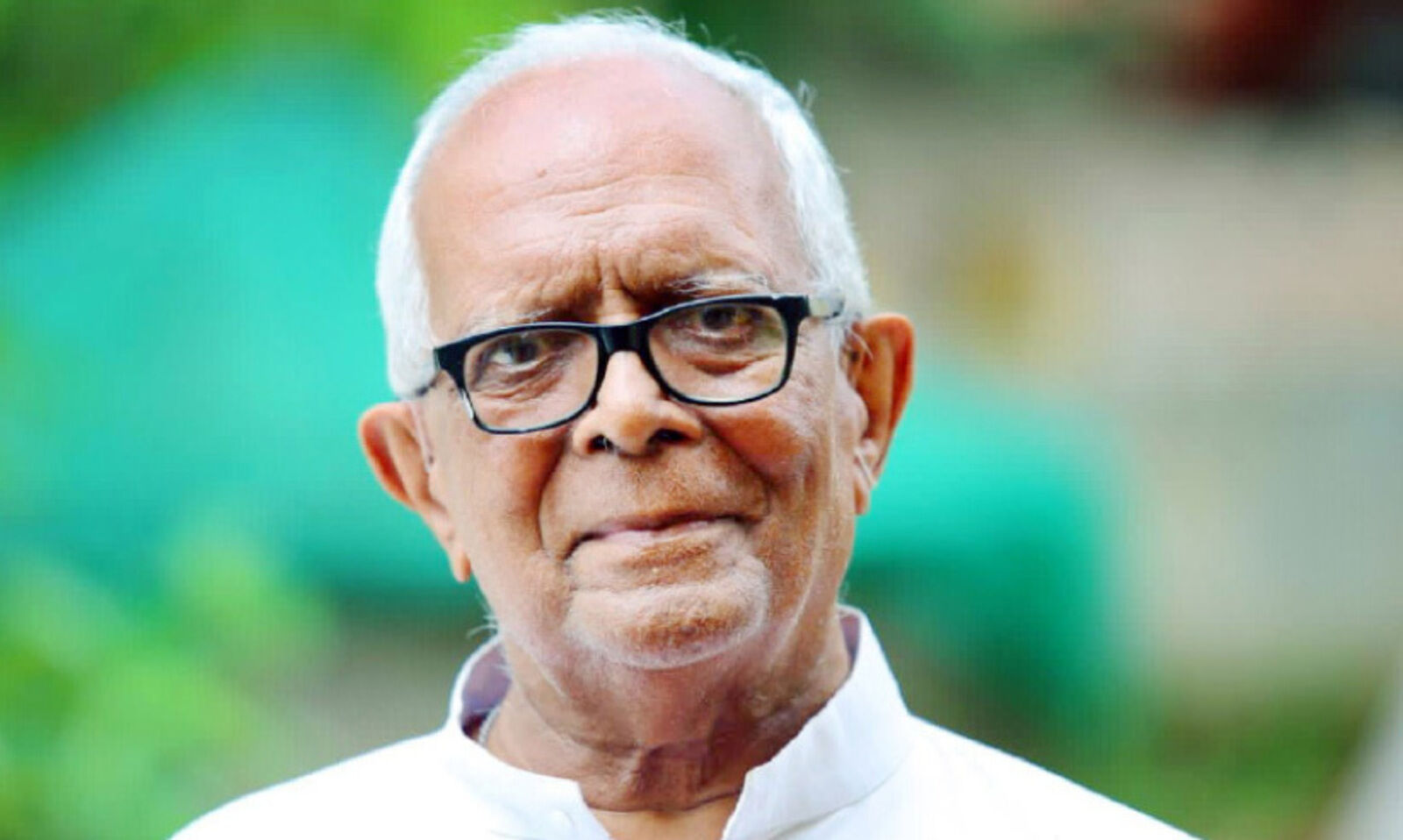
 Anand Kochukudy
Anand Kochukudy

A. Adappur is a familiar byline in the Malayalam literary circles for almost six decades now. At a time Left-leaning writers dominated Kerala’s rich literary universe, it was uncommon for a Christian clergyman to engage on a regular basis with the secular world. For Fr. Abraham Adappur, however, writing was his way of bearing witness to Christ. And despite his image as a Communist baiter, Adappur critiqued the positions taken by the Church with utmost fairness, and went on to be counted among the finest public intellectuals of Kerala in his prime. He was averse to using prefixes such as ‘Fr.’ or ‘Dr.’, as he preferred his writing to do the talking than such labels.
Fr. A Adappur passed away at the age of 96 on December 3 in Kozhikode. Born to a middle-class family in Arakkuzha near Muvattupuzha, Adappur had his tryst with faith while studying at Infant Jesus School in Vazhakulam, and went on to join the Society of Jesus in 1944. After graduating from St. Aloysius College in Mangalore, he got ordained in 1959, at the height of the ‘Vimochana Samaram’ (Liberation Struggle) in Kerala. That same year he also made his debut as a writer, in the prestigious Mathrubhumi Illustrated Weekly, with a detailed article on Mother Teresa titled ‘Ezhakalude Thozhi’ (The Friend of the Destitute). Along with familiarizing the Kolkata-based ‘Missionaries of Charity’ to Malayalis, Adappur was also inspired to imbibe the values of Mother Teresa in his life while researching on his subject.
Adappur’s life-changing mission was only to follow. In the early 1960s, he was deputed to the Jesuit headquarters in Rome as a young priest when the Second Vatican Council got underway. He reported extensively on the deliberations and wrote a series of articles in Mathrubhumi as well as other publications. That stint also served as his probation as a journalist, which went a long way in shaping the sharp writer in him. Back in Kerala in 1966, Mathrubhumi Literary Weekly’s legendary editor N.V. Krishna Warrior offered Adappur regular column space, impressed by the priest’s ability to logically make his arguments in literary Malayalam. Although Adappur mastered English, Latin, French and Italian over the years, it was his command of Malayalam and ability to make sense to the secular reader that made him stand out from the rest.
Krishna Warrior often turned to Adappur for a counter narrative to the Marxist worldview in the weekly. Years spent abroad had made Adappur skeptical of Communists, and he had predicted the collapse of the Soviet Union and the Eastern Bloc as far back as the 1970s’, knowing how it rested on a shaky edifice. It was only natural that Adappur’s writings would result in several run-ins with the Marxists. But he was opposed to any dispensation that restrained liberty and free speech, as demonstrated in his association with the Marxists at the height of Emergency imposed by Indira Gandhi (as testified by eminent Malayalam critic M. K. Sanoo).
Within a week of the lifting of the Emergency in March 1977, ailing state minister T. V. Thomas of the Communist Party of India passed away; Adappur’s revelation that the veteran Communist wished to receive viaticum, the last sacrament, blew up into a huge controversy. His dispatches from Europe in 1978 coinciding with the naming of Pope John Paul hailing from Poland also saw a series of exchanges in Mathrubhumi Literary Weekly with former Chief Minister C. Achutha Menon, with rebuttals and counters.
Rather than as a response to the Marxist regime in Kerala, Adappur’s anti-Communist stance was shaped by his lived experiences abroad. Perhaps that explains his aversion to liberation theology, introduced by Left theoreticians in Kerala, despite being originally conceptualized by the Jesuits in South America. His opposition to the Communists was an extension of his inherent belief that any ‘ism’ that restricted personal freedoms was akin to fascism. But that didn’t stop him from striking up friendships with those from the Left. In fact, his large circle of friends in Kochi where he spent five decades of his life encompassed people from every persuasion.
Adappur also established a monthly debating club at the Lumen Jyothis, the Jesuit house in Kochi, which conducted intellectually stimulating discussions on varied topics. Fr. Paul Thelakkatt, editor of Light of Truth, recalls how Adappur’s presence in Sathyadeepam (mouthpiece of the Ernakulam-Angamaly archdiocese) weekly editorial advisory board meetings played a role in shaping it as a voice of the Church. And despite holding firm views on the tug-of-war vis-à-vis liturgy in the Syro-Malabar Church, he always kept a distance from the politics of it.
Adappur never wavered in his convictions and always advocated his positions from a Christian worldview, but that did not stop him from taking on the Church in Kerala in his latter days through his writings. He once recalled how extensive reading in youth shaped his stance on ‘clericalism’ in the Church. When a fellow Jesuit headed the Roman Catholic Church for the first time in 2013, it wouldn’t have come as a surprise to Adappur that Pope Francis repeatedly spoke out against clericalism.
Adappur openly took on the hierarchy when the Newman College authorities terminated the services of Professor T. J. Joseph, who was mortally attacked by the now-outlawed Popular Front of India (PFI) cadre accusing him of blasphemy. He didn’t take the Church line when large swathes of the Western Ghats were notified as Ecologically Sensitive Areas (ESA) in 2013, preferring to take a more judicious approach.
He was also at the forefront of the efforts of redeeming Syro-Malabar Church mouthpiece (and Kerala’s oldest daily) Deepika from the clutches of vested interests in the mid-2000s when people higher up in the hierarchy failed to act on it. His sharp writings finally forced the Church’s hand.
Looking back, if one were to ask, what Adappur’s lasting legacy would be, it is doubtlessly his engagements with the wider society in secular publications, lending a human face to the Church in the process. A strong adherent of Christ, he demonstrated what it meant to live in the true spirit of his faith, as an embodiment of a good Christian.
(The writer is a Kerala-based Journalist and Columnist)